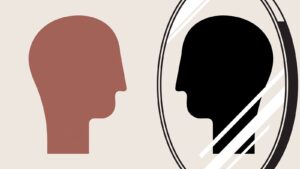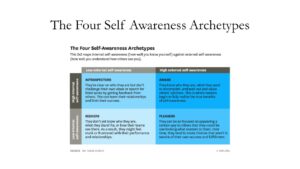By Rose O. Sherman, EdD, RN, NEA-BC, FAAN
Nursing leadership success today demands a very high level of emotional intelligence. There are five essential skills to becoming more emotionally intelligent. These include:
- Self-awareness – knowing one’s strengths, weaknesses, drives, values, and impact on others.
- Self-regulation – controlling or redirecting impulses and moods.
- Motivation – relishing achievement for its own sake.
- Empathy – understanding and feeling the emotional make-up of others.
- Social Skill – building effective relationships and partnerships.
Leaders often tell me they struggle the most with self-awareness of the five skills. Consider the following story told to me by a nurse manager:
I know my strengths and weaknesses, but I struggle with getting a clear assessment of the impact of my words and behaviors on others. I like to get things done and know I can be very pushy, but I am also one of our organization’s most effective managers. So when my CNO told me that I sometimes come across in meetings like a bull in a China closet, I was surprised. She pointed out to me recently that if I expect to move up the ladder in leadership, I need to temper my behaviors and ensure others are on board before I forge ahead on initiatives. My ability to read a room is not that good. My level of self-awareness is not what it needs to be to be more successful. I don’t spend much time thinking about how my words and behaviors impact others, but I need to.
This nurse leader is not alone. Many nurse leaders I work with are very high performers but struggle with self-awareness. Tashu Eurich points out that her research has found two types of self-awareness. The first is internal self-awareness, or how we see ourselves, live our values, and fit in with our environment. The second type is external self-awareness, or knowing how others view us. She notes that leaders can be very good in one kind of self-awareness and much weaker in the second type. She identifies four self-awareness archetypes presented in the table below:
Skilled leaders learn to balance their external and internal self-awareness, which sometimes consists of competing viewpoints. The nurse leader above had high internal self-awareness but low external self-awareness. She was unaware of her blindspots and rarely sought feedback from others. Some leaders have the opposite problem—they are so concerned about how others think that they overlook their values and become identified as people-pleasers without internal solid compasses.
I always advise leaders to listen to others’ feedback carefully. If you hear a comment once, it may be just one person’s opinion, but if the comment is made more frequently – view it as a leadership theme to pay attention to. We all have areas in our leadership that we need to improve – if one of yours is self-awareness, begin to work on it and seek feedback from others.
© emergingrnleader.com 2024
Brand New Workshop for 2024 – Leading in the New World of Work. Click on Flyer The New World of Work Workshop
Bring the Nurse Leader Coach Workshop to Your Facility Virtually or Onsite. Click Here for the Nurse Leader Coach WS Flyer
New Offering – Redesigning Care Delivery Strategic Planning Session for Your Leadership Team – Click Here for Flyer
Rebuilding Your Nursing Team in 2024: Tactics to Work Better Together – Click Here for the Flyer
Now Available at Amazon and all Major Book Sellers





 LinkedIn
LinkedIn Instagram
Instagram